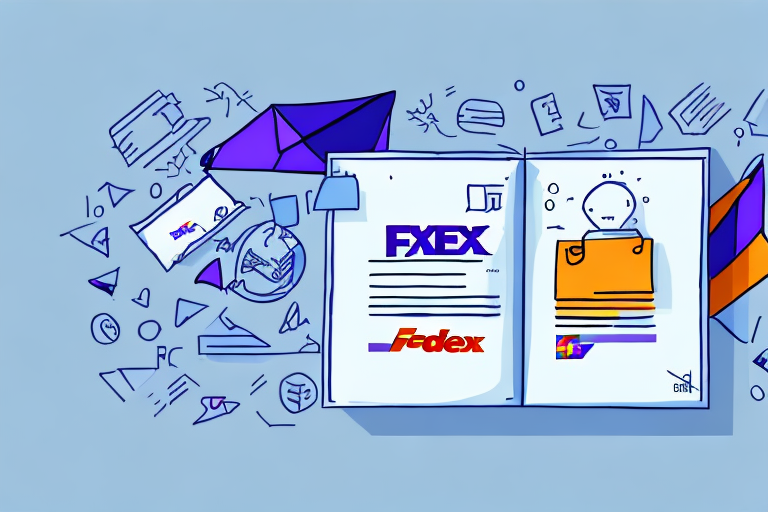Understanding Declared Value in Shipping
When shipping items with FedEx, understanding the concept of declared value is essential. Declared value is the monetary value you assign to your shipment, which determines FedEx’s liability in case of loss, damage, or theft. Accurately declaring the value ensures that you receive appropriate compensation should any issues arise during transit.
Declared value serves as the basis for FedEx’s liability, excluding any taxes or duties. It's crucial to balance the declared value to avoid additional fees for over-declaration or insufficient compensation for under-declaration.
Calculating and Declaring the Proper Value
Calculating the declared value of your shipment involves assessing the total worth of the items being shipped, including the cost of the item itself and any applicable taxes and duties. Here’s a step-by-step approach:
- Determine the item's cost: Include the purchase price or the fair market value if the item is used.
- Add applicable taxes and duties: For international shipments, consider import taxes and duties.
- Calculate the total value: Sum the cost and taxes/duties to arrive at the total declared value.
For example, if you're shipping a laptop valued at $800 with an import duty of $200, the total declared value would be $1,000.
Note: Declaring a value lower than the actual can result in inadequate compensation, while over-declaring may incur additional fees.
Declared Value vs Insurance
While both declared value and insurance provide protection for your shipments, they are not the same:
- Declared Value: This is the maximum amount FedEx will compensate for a lost or damaged item. It is included in the shipping cost.
- Insurance: This offers additional coverage beyond the declared value and can include protection against specific risks like theft or damage from natural disasters.
For high-value items such as antiques, artwork, or expensive electronics, purchasing additional insurance is advisable to ensure full coverage.
FedEx's Shipping Options for High-Value Items
FedEx provides several options to accommodate high-value shipments:
FedEx Express® Freight
This service covers items with a declared value up to $25,000. It is suitable for shipping large or valuable items domestically.
Declared Value Advantage Service
For international shipments, FedEx’s Declared Value Advantage service allows you to declare values up to $100,000 per shipment. The cost starts at $3 for every $100 of declared value, providing extensive coverage for valuable items.
Excess Valuation
Customers can purchase excess valuation to cover values beyond FedEx’s standard liability programs, ensuring comprehensive protection for ultra-high-value shipments.
Managing Declared Value Limits and Customs
FedEx sets declared value limits based on several factors, including the shipping method, item type, and destination. These limits help manage the risks and ensure that both the customer and FedEx are protected from potential losses.
Role of Customs in International Shipments
For international shipments, customs authorities in the destination country play a critical role in determining the declared value. They may assess the value based on factors like market value, manufacturing costs, and item type. It is essential to research and comply with the customs regulations of the destination country to ensure smooth transit and accurate declaration.
Incorrect or misleading declarations can lead to delays, fines, or confiscation of the shipment. Consulting the U.S. Customs and Border Protection for guidelines is recommended.
Protecting Your Shipment and Filing Claims
To safeguard your shipment, consider the following tips:
- Use sturdy packaging: Ensure that items are well-protected with appropriate materials to prevent damage.
- Proper labeling: Clearly label packages with handling instructions and accurate declared values.
- Choose the right shipping method: Select services that offer the necessary coverage and speed based on the item's value.
In the event of loss or damage, filing a claim with FedEx is straightforward:
- File online: Use the FedEx Claims Center to submit your claim.
- Provide necessary documentation: Include proof of shipment value, item details, and evidence of damage or loss.
- Await assessment: FedEx will evaluate the claim and provide compensation based on their liability program.
Understanding FedEx's liability coverage for different shipment types is crucial to ensure you receive appropriate compensation.
FedEx vs Other Shipping Carriers: A Comparison of Declared Value Limits and Policies
When selecting a shipping carrier, comparing declared value limits and policies is vital to choose the best option for your needs:
- FedEx: Offers declared value up to $100,000 for international shipments with the Declared Value Advantage service.
- UPS: Provides declared value coverage up to $50,000, with options for additional coverage.
- DHL: Typically covers up to $100,000 for high-value international shipments, similar to FedEx.
Choosing the right carrier depends on your specific requirements, such as the destination, value of items, and additional services needed. It's advisable to review each carrier's policies on their official websites:
FedEx’s Declared Value Advantage makes it a strong contender for shipping high-value items internationally, but comparing all options ensures you select the most suitable carrier.
Conclusion
Properly declaring the value of your shipment with FedEx is crucial for ensuring adequate protection and compensation in case of any issues during transit. By understanding declared value, accurately calculating it, exploring additional insurance options, and choosing the right shipping method, you can safeguard your valuable items effectively. Additionally, being aware of FedEx’s declared value limits and how they compare to other carriers helps in making informed shipping decisions. Following the tips and guidelines outlined in this article will contribute to a smoother and more secure shipping experience with FedEx.




















